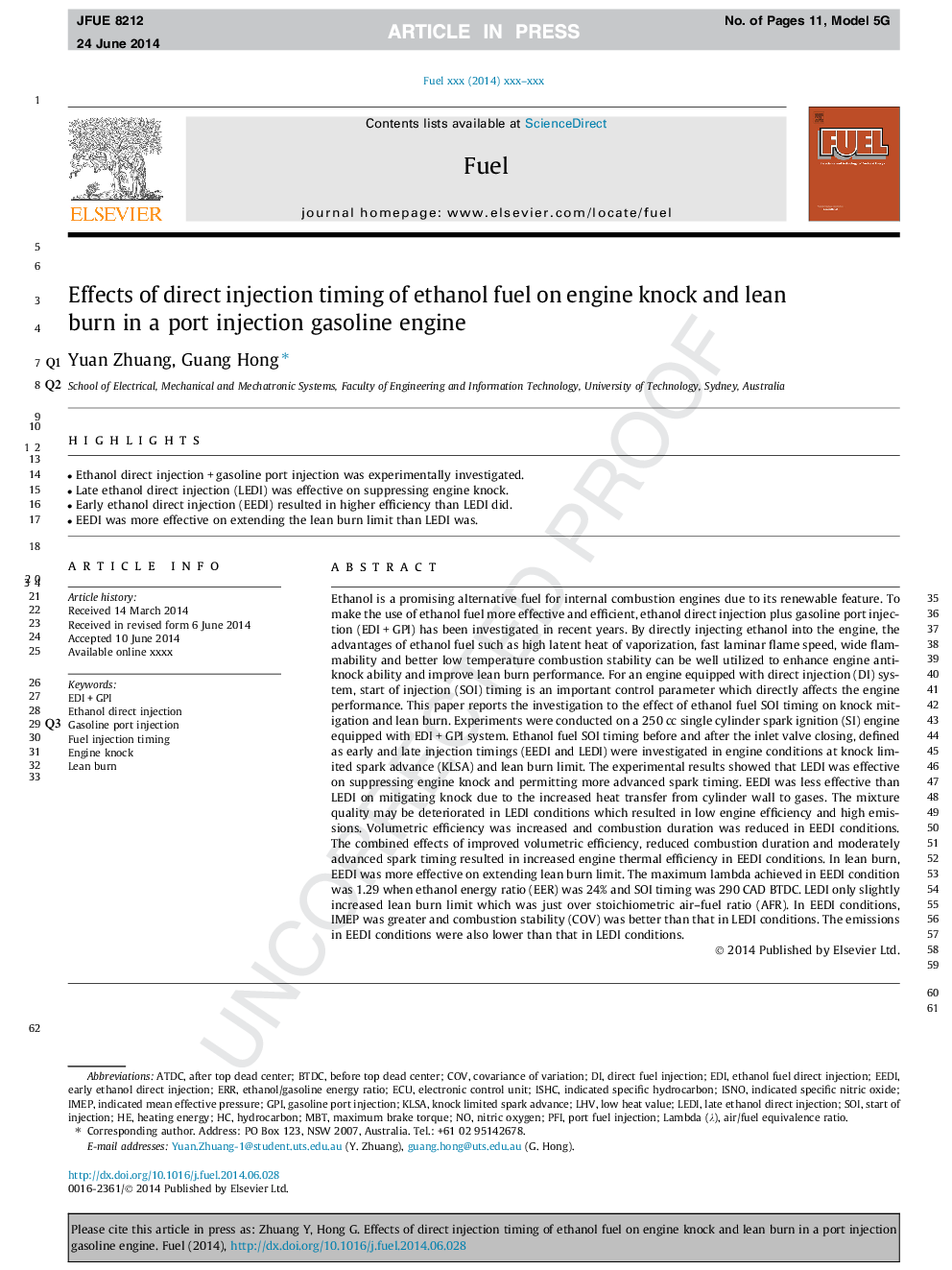| کد مقاله | کد نشریه | سال انتشار | مقاله انگلیسی | نسخه تمام متن |
|---|---|---|---|---|
| 6636668 | 461137 | 2014 | 11 صفحه PDF | دانلود رایگان |
عنوان انگلیسی مقاله ISI
Effects of direct injection timing of ethanol fuel on engine knock and lean burn in a port injection gasoline engine
ترجمه فارسی عنوان
تأثیر زمان تزریق مستقیم سوخت اتانول بر روی موتور محکم و سوختگی در یک موتور بنزینی تزریق پورت
دانلود مقاله + سفارش ترجمه
دانلود مقاله ISI انگلیسی
رایگان برای ایرانیان
کلمات کلیدی
SOIEDIIMEPERRECULHVPFIGPiMBTaTDCEEDIKnock Limited Spark AdvancebTDC - BTDCCOV - THEHeating energy - انرژی گرماییafter top dead center - بعد از مرده مردهport fuel injection - تزریق سوخت پورتEthanol direct injection - تزریق مستقیم اتانولMaximum Brake Torque - حداکثر گشتاور ترمزLean burn - سوختگی نابStart of injection - شروع تزریقbefore top dead center - قبل از مرده مردهEngine knock - موتور دست کشیدنIndicated mean effective pressure - نشان دهنده فشار متوسط موثر استhydrocarbon - هیدروکربنelectronic control unit - واحد کنترل الکترونیکی
موضوعات مرتبط
مهندسی و علوم پایه
مهندسی شیمی
مهندسی شیمی (عمومی)
چکیده انگلیسی
Ethanol is a promising alternative fuel for internal combustion engines due to its renewable feature. To make the use of ethanol fuel more effective and efficient, ethanol direct injection plus gasoline port injection (EDIÂ +Â GPI) has been investigated in recent years. By directly injecting ethanol into the engine, the advantages of ethanol fuel such as high latent heat of vaporization, fast laminar flame speed, wide flammability and better low temperature combustion stability can be well utilized to enhance engine anti-knock ability and improve lean burn performance. For an engine equipped with direct injection (DI) system, start of injection (SOI) timing is an important control parameter which directly affects the engine performance. This paper reports the investigation to the effect of ethanol fuel SOI timing on knock mitigation and lean burn. Experiments were conducted on a 250Â cc single cylinder spark ignition (SI) engine equipped with EDIÂ +Â GPI system. Ethanol fuel SOI timing before and after the inlet valve closing, defined as early and late injection timings (EEDI and LEDI) were investigated in engine conditions at knock limited spark advance (KLSA) and lean burn limit. The experimental results showed that LEDI was effective on suppressing engine knock and permitting more advanced spark timing. EEDI was less effective than LEDI on mitigating knock due to the increased heat transfer from cylinder wall to gases. The mixture quality may be deteriorated in LEDI conditions which resulted in low engine efficiency and high emissions. Volumetric efficiency was increased and combustion duration was reduced in EEDI conditions. The combined effects of improved volumetric efficiency, reduced combustion duration and moderately advanced spark timing resulted in increased engine thermal efficiency in EEDI conditions. In lean burn, EEDI was more effective on extending lean burn limit. The maximum lambda achieved in EEDI condition was 1.29 when ethanol energy ratio (EER) was 24% and SOI timing was 290 CAD BTDC. LEDI only slightly increased lean burn limit which was just over stoichiometric air-fuel ratio (AFR). In EEDI conditions, IMEP was greater and combustion stability (COV) was better than that in LEDI conditions. The emissions in EEDI conditions were also lower than that in LEDI conditions.
ناشر
Database: Elsevier - ScienceDirect (ساینس دایرکت)
Journal: Fuel - Volume 135, 1 November 2014, Pages 27-37
Journal: Fuel - Volume 135, 1 November 2014, Pages 27-37
نویسندگان
Yuan Zhuang, Guang Hong,
